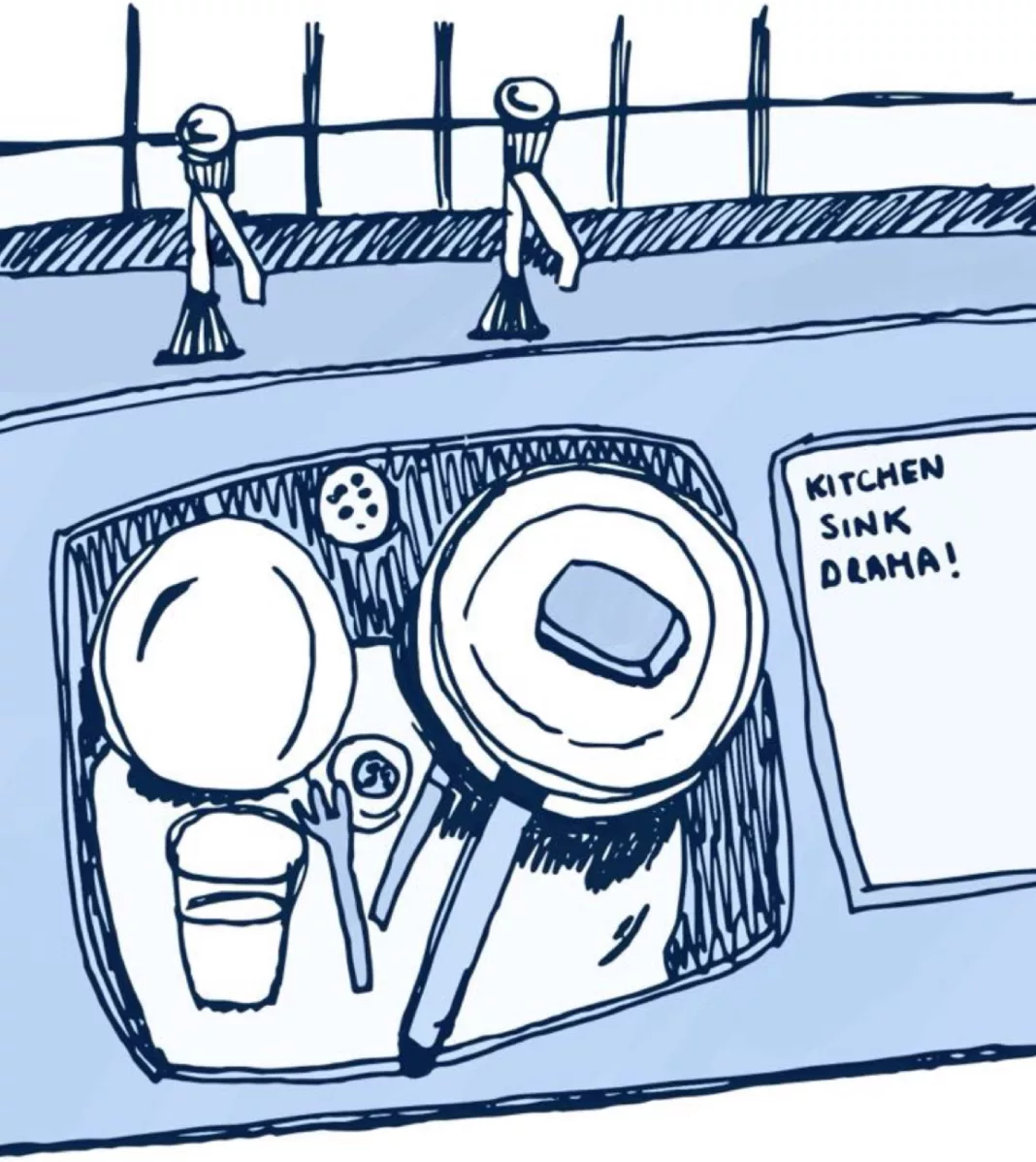In my household, growing up, there was very specific etiquette regarding use of the kitchen sink. Over the past few months, I have discovered that this etiquette is far from universal, though its importance has been magnified by the absence of dishwashers from the average student kitchen.
The first hurdle is whether used utensils even reach the kitchen, let alone the sink, and the appropriate time for them to do so. It is commonly agreed that a mug or a glass can be used all day for the same beverage. The same rule can be extended to a teaspoon used in the making of tea. Most other kitchen equipment is single use only. This frequently does not stop sauce from crusting itself to a plate shoved to the side of a desk for a week. In your own space, that’s your problem. In a communal kitchen, it’s sure to spark resentment, particularly if the abandoned matter begins to produce new life.
Once the crockery reaches the sink, there arises the issue of diversity of hygiene standards. Can a simple rinse under water suffice if it looks clean? Does the temperature of the water matter? Is soap always a necessity? There is also the problem of how to address what you find already in the sink on your arrival. I was raised to wash everything in the sink, regardless of who made the mess – to do otherwise indicated a selfish disregard for others. This would usually include a quick scan of the surrounding area for anything that had not yet made it to either the sink or the counter beside it to be washed. I soon discovered that most of my flatmates did not adhere to this same policy, and would wash only their own dishes, leaving everything else forlorn in the bottom of the sink.
Another general principle of washing that proved to be far from universal was that of how washed items should be placed. In the absence of a dish rack, this was somewhat haphazard. I thought it common practice to turn dishes with the capacity to accumulate pools of murky water upside down in order to prevent freshly washed items from becoming breeding grounds for bacteria in fluid form. Apparently not. Our tea towels are somehow always wet, so drying the dishes directly from the sink is never an option. I cannot imagine how a bowl can be expected to air dry if it contains an inch of water, nor how such a bowl could be considered clean for use. Fortunately, this bore little effect on me, as my dishes were rarely washed by anyone other than myself.
One issue, which soon came to irritate me, however, was the constant pool of water on the floor in front of the sink. Yes, certain curved utensils have the capacity to project running water in all directions, but preventing this is not impossible. Nevertheless, I learned the hard way that the kitchen requires either shoes or bare feet, never socks. It doesn’t help that the tap never completely turns off. Its dripping haunts us all.
I am far from immune to lapses in culinary hygiene myself, and critical though this article may be, I am aware that the situation could be far worse. Horror stories of ants, overflowing bins, and food left to rot for weeks on end have thankfully not become a part of my personal uni experience. However, I have found the kitchen sink to be a fascinating microcosm of social and cultural differences within my flat.


